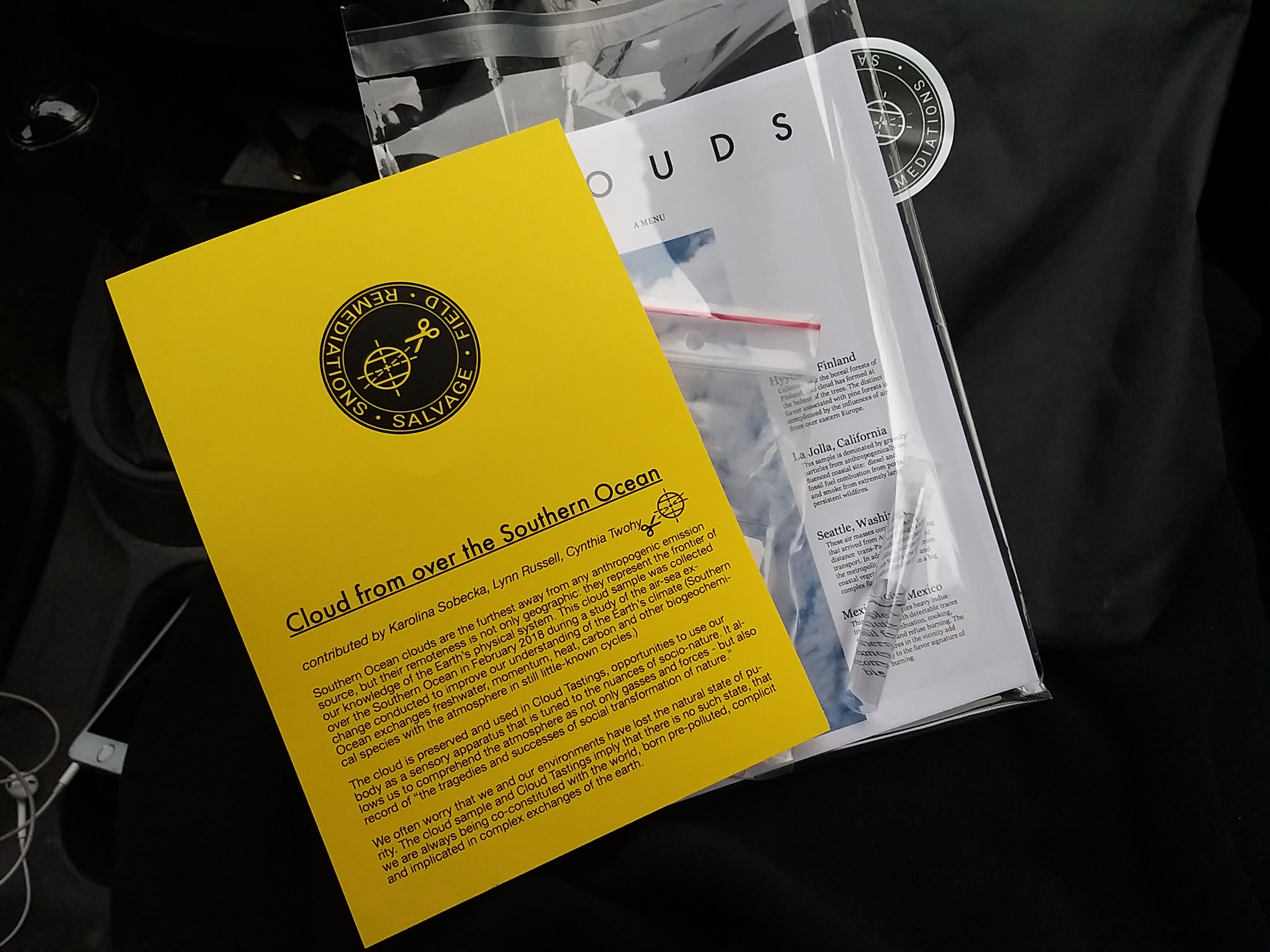A series of field visits with curated libraries in food trucks and taxi services at COP24
A collaboration with the Field Remediation Library
Blasted landscapes are what we have, and we need to explore their life-promoting patches. - Anna Tsing
Field Remediation: Salvage is a set of activities, field visits over the course of COP24 asking the question what comes after consumption, what is the aftermath of the consumed ecosystems. In a turn to sustainability, the ‘post-consumption’ phase of our food systems — that manages the by-products of all other system phases — is to be reconfigured to recapture waste as resource to be reinvested, a literal enactment of what Anna Tsing calls ’salvage accumulation’ processes that convert the generative and heterogeneous processes into assets legible to economics and markets.
The Salvage Library, a collection of books, recipes, and objects from sites of the Polish food system is distributed in food delivery vehicles in Katowice. Participants were invited to catch a ride to the conference in one of these mobile libraries, and sample and learn about the past and the future of the Polish sourdough and fermentation microflora, Polish wine industry, food preservation techniques, and other wilding possibilities of salvage. Field Remediation: Salvage created opportunities for dialogue between locals and conference participants, exploring and activating the interfaces that embed climate negotiations in the context and materiality of the Katowice area and Poland.
Field Remediation: Salvage is a set of activities, field visits over the course of COP24 asking the question what comes after consumption, what is the aftermath of the consumed ecosystems. In a turn to sustainability, the ‘post-consumption’ phase of our food systems — that manages the by-products of all other system phases — is to be reconfigured to recapture waste as resource to be reinvested, a literal enactment of what Anna Tsing calls ’salvage accumulation’ processes that convert the generative and heterogeneous processes into assets legible to economics and markets.
The Salvage Library, a collection of books, recipes, and objects from sites of the Polish food system is distributed in food delivery vehicles in Katowice. Participants were invited to catch a ride to the conference in one of these mobile libraries, and sample and learn about the past and the future of the Polish sourdough and fermentation microflora, Polish wine industry, food preservation techniques, and other wilding possibilities of salvage. Field Remediation: Salvage created opportunities for dialogue between locals and conference participants, exploring and activating the interfaces that embed climate negotiations in the context and materiality of the Katowice area and Poland.
Model: Free program for participants, coordination with local catering and food transportation services, volunteer based
Project credits: A project led by Karolina Sobecka in collaboration with Chris Woebken with the help of our class at NYU ITP, and Alexandra Skowronska, Ela Kowalska, Oliwia Olesiejuk and Anna Paprzycka from HAT Research Center (UAM). With the support of Red Cross Red Crescent Climate Centre, City of Katowice, New York University ITP and Adam Mickiewicz University.
Project credits: A project led by Karolina Sobecka in collaboration with Chris Woebken with the help of our class at NYU ITP, and Alexandra Skowronska, Ela Kowalska, Oliwia Olesiejuk and Anna Paprzycka from HAT Research Center (UAM). With the support of Red Cross Red Crescent Climate Centre, City of Katowice, New York University ITP and Adam Mickiewicz University.



